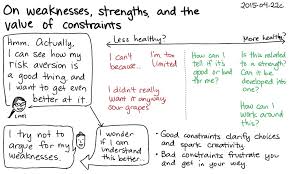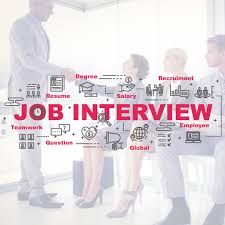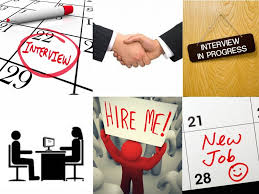Often employers know how to ask awkward and trick questions that we don't know how to answer. In this text, we give some examples of ideal answers to the most common questions that can be asked during a job interview.
First of all, it should be noted that a job interview is a necessary step for all candidates. It often consists of questions that can help the employer analyze the candidate's way of thinking, as well as his communication skills. So, the goal of these questions is not to confuse the candidate, but above all to test his motivation and check some competencies.
1. Say something about yourself?
Frequently asked question at the beginning of the interview. This question rejects many candidates. Why? For the simple reason that it is so general, it is often difficult to know what to say and where to start. The ideal answer should be concise, but include enough information about the experience and abilities related to the requirements of the ad. Too vague an answer, with no concrete examples, can lead an employer to wonder if a candidate fits the profile. The employer should make sure that you are the most ideal candidate for the position for which the competition has been announced, in clear and fluent speech.

2. Why did you choose our company?
The employer wants you to show him your interest in the company. You must get acquainted with the company before the interview. You must present the global knowledge of the company, its operations, culture, products, services, etc.
3. Why are you interested in this job?
By asking this question, the employer tries to make sure how much the candidate is really interested in the job and working in the company. Therefore, it is clear that the answer should show that you really know what is expected of you and that you know the company or institution. Also, this question gives you opportunities to connect your skills, education and experience with the workplace and the company.
4. What are your strengths?
List all your advantages, but be sure to prepare arguments to prove them. Do not be modest and do not hesitate to present all your qualities, but still be realistic. If you say you are a team player, give examples of where you have successfully completed a project or job as a team. If you have stated that you are a communicative person, try to illustrate in which jobs or situations this ability of yours came to the fore.

and your weaknesses, source: flickr.com
5. What are your weaknesses?
Candidates usually give classic answers to this question, such as: "I am a workaholic" or "I am too perfectionist". Wrong strategy. This type of answer may seem pre-prepared and often sounds wrong. It is much better to talk about things where you plan to improve further. For example: I don't know German or French well enough, I plan to improve it further. I don't know very well Excel, I'm working on it. Of course, this only applies if the announcement does not require knowledge of these languages or this program. By doing so, you are showing that you are an ambitious person, which is exactly what the employer is looking for.
6. Why would we choose you?
If you are asked this question, it means that you are already well positioned among other candidates. The employer asks for additional confirmation that you are the ideal candidate. Emphasize your ability to adapt to new situations and new challenges. You illustrate with examples your results, projects and concrete achievements. Don't talk about how much you need a job, how you are in trouble. This will only cause a counter effect.
7. How do you intend to make up for your lack of experience?
Highlight the skills and achievements that will show the employer that he can trust you. List the skills and knowledge you acquired during your studies or the projects you worked on while studying. List some modern approaches to solving problems or tasks that you learned while studying. The most important thing is to show that you are ready to learn and adapt.
8. Where do you see yourself in 5 years?
This is a real trick question. It is necessary to show that you are an ambitious person, but at the same time you plan to stay in the company. You definitely need to set yourself some long-term goals that will keep you going. Don't give the impression that you are leaving after 6 months! Say that you want to progress within the company, but also that you want to improve your knowledge and gain new ones.
9. Do you have any question?
You must have a question. Don’t answer in any way that you don’t have questions because it shows that you are an indifferent person. Motivation for the job should also be emphasized here. The right strategy is to ask a few targeted questions to the employer about the corporate culture, about colleagues, about superiors, about the company's mission and strategy, etc.

Be sure to bring a few examples CVand Cover lettre, you will probably need to give it to someone else in the company. If you didn't do well in a job interview, or if you didn't get a job, don't despair and don't lose hope. Keep in mind that some of the world's greatest experts did not immediately get the job they were looking for and did not do well in the job interview. Also, know that many who interview candidates are not the most competent for the job.

